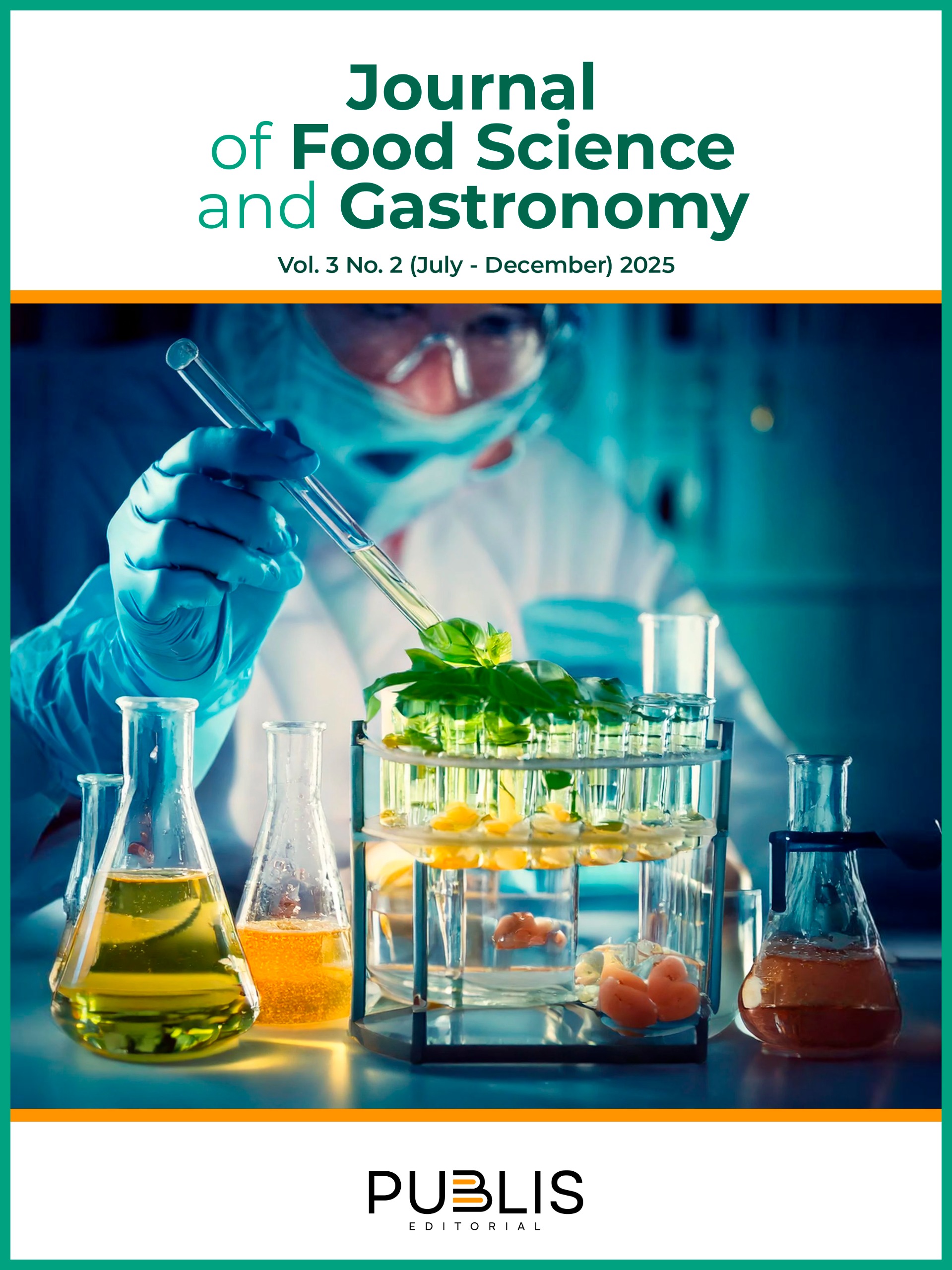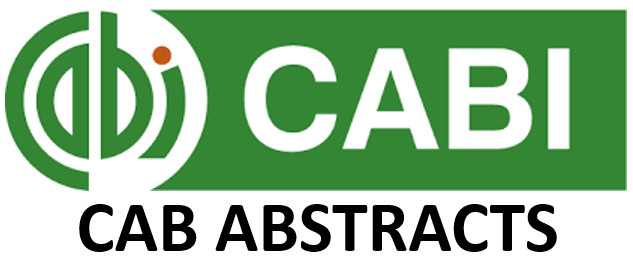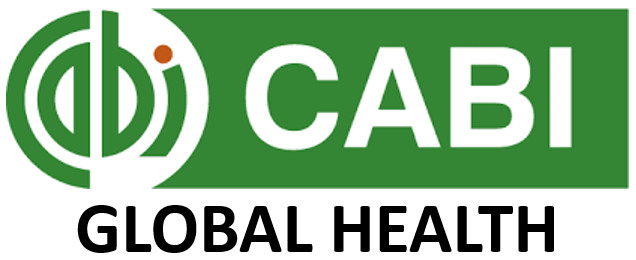Development and technological perspectives of low-sugar gelled fruit creams
DOI:
https://doi.org/10.5281/zenodo.16741130Keywords:
hydrocolloids, gelled creams, low sugar content, natural gums, food developmentAbstract
This review examines the application of hydrocolloids, particularly natural gums like xanthan gum and locust bean gum (LBG), in the production of low-sugar fruit gel products, including creams, jellies, and marmalades. Their technological applications, blending efficiency, and functional properties are explored, along with a comparison with traditional pectin. The studies analyzed demonstrate that these gums can enhance the texture, stability, and rheological properties of reduced-sugar formulations, while also providing acceptable sensory characteristics and promoting the production of healthier foods. Advances in product development, such as gel creams, are also being identified, along with research focused on specific formulations. However, technical and economic limitations are recognized, such as variability in gum quality and cost, which can hinder their industrial implementation. Finally, the focus is on trends in clean labeling, the potential for innovation in the functional food industry, and the growing consumer preference for natural and sustainable products, consolidating alternative hydrocolloids as a tool for the future of food development.
Downloads
References
Alam, M., Kaur, S., Dar, B. N., & Nanda, V. (2025). Classification, techno-functional properties, and applications of diverse hydrocolloids in fruits-based products: A concise review. Journal of Food Science, 90(3), e70119. https://doi.org/10.1111/1750-3841.70119
Al-Nuaimi, S. R., & Al-Ghamdi, S. G. (2022). Sustainable Consumption and Education for Sustainability in Higher Education. Sustainability, 14(12), 7255. https://doi.org/10.3390/su14127255
Asase, R. V., & Glukhareva, T. V. (2023). Production and application of xanthan gum—Prospects in the dairy and plant-based milk food industry: A review. Food Science and Biotechnology, 33(4), 749–767. https://doi.org/10.1007/s10068-023-01442-7
Basu, S., Shivhare, U. S., & Chakraborty, P. (2017). Influence of sugar substitute in rheology of fruit gel. En J. Ahmed (Ed.), Advances in Food Rheology and Its Applications (pp. 355–376). Woodhead Publishing. https://doi.org/10.1016/B978-0-08-100431-9.00014-0
Ben Rejeb, I., Dhen, N., Kassebi, S., & Gargouri, M. (2020). Quality evaluation and functional properties of reduced sugar jellies formulated from citrus fruits. Journal of Chemistry, 2020, Article 5476872. https://doi.org/10.1155/2020/5476872
Benedek, C., Bodor, Z., Merrill, V. T., Kókai, Z., Gere, A., Kovacs, Z., Dalmadi, I., & Abrankó, L. (2020). Effect of sweeteners and storage on compositional and sensory properties of blackberry jams. European Food Research and Technology, 246, 2187–2204. https://doi.org/10.1007/s00217-020-03564-2
Bigliardi, B., & Galati, F. (2013). Innovation trends in the food industry: The case of functional foods. Trends in Food Science & Technology, 31(2), 118–129. https://doi.org/10.1016/j.tifs.2013.03.006
Câmara, J. S., Albuquerque, B. R., Aguiar, J., Corrêa, R. C. G., Gonçalves, J. L., Granato, D., Pereira, J. A. M., Barros, L., & Ferreira, I. C. F. R. (2020). Food bioactive compounds and emerging techniques for their extraction: Polyphenols as a case study. Foods, 10(1), 37. https://doi.org/10.3390/foods10010037
Chang, M. Y., & Chen, H. S. (2022). Understanding consumers’ intentions to purchase clean label products: Evidence from Taiwan. Nutrients, 14(18), 3684. https://doi.org/10.3390/nu14183684
Charoenphun, N., Noonim, P., Lekjing, S., Nitikornwarakul, C., Pham, N. H., & Venkatachalam, K. (2025). Physicochemical properties, antioxidant activity, and flavor profile of strawberry fruit-based novel drinking jelly made with Gracilaria fisheri seaweed as a gelling agent at varying concentrations. Gels, 11(1), 54. https://doi.org/10.3390/gels11010054
Chaturvedi, S., Kulshrestha, S., Bhardwaj, K., & Jangir, R. (2021). A review on properties and applications of xanthan gum. En A. Vaishnav & D. K. Choudhary (Eds.), Microbial polymers (pp. 87–107). Springer. https://doi.org/10.1007/978-981-16-0045-6_4
Dabo, K. F., Chèné, C., Fameau, A.-L., & Karoui, R. (2024). Whipping Creams: Advances in Molecular Composition and Nutritional Chemistry. Molecules, 29(24), 5933. https://doi.org/10.3390/molecules29245933
Donovan, S. M., Abrahams, M., Anthony, J. C., Bao, Y., Barragan, M., Bermingham, K. M., Blander, G., Keck, A.-S., Lee, B. Y., Nieman, K. M., Ordovas, J. M., Penev, V., Reinders, M. J., Sollid, K., Thosar, S., & Winters, B. L. (2025). Personalized nutrition: perspectives on challenges, opportunities, and guiding principles for data use and fusion. Critical Reviews in Food Science and Nutrition, 1–18. https://doi.org/10.1080/10408398.2025.2461237
Gao, Y., Liu, R., & Liang, H. (2024). Food Hydrocolloids: Structure, Properties, and Applications. Foods, 13(7), 1077. https://doi.org/10.3390/foods13071077
García, M., & Manriquez-Hernandez, J. (2016). Carrageenan properties and applications: A review. In L. Pereira (Ed.), Carrageenans: Sources and extraction methods, molecular structure, bioactive properties and health effects (pp. 17–50). Nova Science Publishers.
Gawkowska, D., Cybulska, J., & Zdunek, A. (2018). Structure-related gelling of pectins and linking with other natural compounds: A review. Polymers, 10(7), 762. https://doi.org/10.3390/polym10070762
Grant, K. R., Gallardo, R. K., & McCluskey, J. J. (2021). Consumer preferences for foods with clean labels and new food technologies. Agribusiness, 37(4), 764–781. https://doi.org/10.1002/agr.21705
Grunert, K. G. (2011). Sustainability in the food sector: A consumer behaviour. International Journal on Food System Dynamics, 2(3), 207–218.
Hart, T. L., Kris-Etherton, P. M., & Petersen, K. S. (2025). Nutrient displacement associated with replacing intake of usual snacks with pecans: An exploratory analysis of a randomized controlled trial. Current Developments in Nutrition, 9(5), 107438. https://doi.org/10.1016/j.cdnut.2025.107438
Hassan, C. Z., Ahmad, S. S., Agbaje, R., & Omar, S. R. (2018). Effect of sugar concentration on gelling properties of pectin from Malaysian banana peels (Musa acuminata × balbisiana). International Journal of Innovative Science and Research Technology, 3(12), 170–177. https://ijisrt.com/wp-content/uploads/2018/12/IJISRT18DC38.pdf
Jiménez-Escrig, A., Rincon, M., Pulido, R., & Saura-Calixto, F. (2021). Guava fruit (Psidium guajava L.) as a source of antioxidant dietary fiber. Journal of Agricultural and Food Chemistry, 49(11), 5489-93. https://doi.org/10.1021/jf010147p
Johnson, R. K., Appel, L. J., Brands, M., Howard, B. V., Lefevre, M., Lustig, R. H., Sacks, F., Steffen, L. M., & Wylie-Rosett, J.; American Heart Association Nutrition Committee of the Council on Nutrition, Physical Activity, and Metabolism and the Council on Epidemiology and Prevention. (2009). Dietary sugars intake and cardiovascular health: A scientific statement from the American Heart Association. Circulation, 120(11), 1011–1020. https://doi.org/10.1161/CIRCULATIONAHA.109.192627
Kawee-ai, A. (2025). Advancing gel systems with natural extracts: Antioxidant, antimicrobial applications, and sustainable innovations. Gels, 11(2), 125. https://doi.org/10.3390/gels11020125
Lara-Espinoza, C., Carvajal-Millán, E., Balandrán-Quintana, R., López-Franco, Y., & Rascón-Chu, A. (2018). Pectin and pectin-based composite materials: Beyond food texture. Molecules, 23(4), 942. https://doi.org/10.3390/molecules23040942
Ma, X., Nan, F., Liang, H., Shu, P., Fan, X., Song, X., Hou, Y., & Zhang, D. (2022). Excessive intake of sugar: An accomplice of inflammation. Frontiers in Immunology, 13, 988481. https://doi.org/10.3389/fimmu.2022.988481
Mahato, D. K., Magriplis, E., Sharma, N., & Gamlath, S. (2024). Editorial: Sugar reduction strategies in foods: Sensory, nutritional and safety evaluation. Frontiers in Nutrition, 11, 1370781. https://doi.org/10.3389/fnut.2024.1370781
Malik, V. S., & Hu, F. B. (2019). Sugar-sweetened beverages and cardiometabolic health: An update of the evidence. Nutrients, 11(8), 1840. https://doi.org/10.3390/nu11081840
Massoud, M. I., Abd El-Razek, A. M., & El-Yemany, I. M. (2018). Influence of xanthan gum and inulin as thickening agents for jam production. Egyptian Journal of Food Science, 46(1), 43–54. https://ejfs.journals.ekb.eg/article_30433.html
Migliore, G. (2021). Sustainable food consumption practices: Insights into consumers’ experiences. Sustainability, 13(11), 5979. https://doi.org/10.3390/su13115979
Morais, R. A., Soares, C. M. da S., Silva, R. R. da, Gualberto, L. da S., Freitas, B. C. B. de, Carvalho, E. E. N., & Martins, G. A. de S. (2022). Formulation and evaluation of guapeva jam: Nutritional properties, bioactive compounds, and volatile compounds during storage. Food Science and Technology, 42, e116321. https://doi.org/10.1590/fst.116321
Moynihan, P. J., & Kelly, S. A. (2014). Effect on caries of restricting sugars intake: Systematic review to inform WHO guidelines. Journal of Dental Research, 93(1), 8–18. https://doi.org/10.1177/0022034513508954
Nissa, C., Arifan, F., Febrianto, R., Aditya, W., Dwimawanti, I. H., & Widyasmara, R. P. (2019). Effect of sugar on nutrient composition and shelf life of red guava jams. IOP Conference Series: Earth and Environmental Science, 406(1), 012027. https://doi.org/10.1088/1755-1315/406/1/012027
Onyeaka, H., Nwaiwu, O., Obileke, K., Miri, T., & Al-Sharify, Z. T. (2023). Global nutritional challenges of reformulated food: A review. Food Science & Nutrition, 11(6), 2483–2499. https://doi.org/10.1002/fsn3.3286
Onyeaka, H., Nwaiwu, O., Obileke, K., Miri, T., & Al-Sharify, Z. T. (2023). Global nutritional challenges of reformulated food: A review. Food Science & Nutrition, 11(6), 2483–2499. https://doi.org/10.1002/fsn3.3286
Pereira, P. A. P., de Souza, V. R., Teixeira, T. R., Queiroz, F., Borges, S. V., & Carneiro, J. de D. S. (2013). Rheological behavior of functional sugar-free guava preserves: Effect of the addition of salts. Food Hydrocolloids, 31(2), 404–412. https://doi.org/10.1016/j.foodhyd.2012.11.014
Poret, F., Cordinier, A., Hucher, N., Grisel, M., & Savary, G. (2021). Impact of the synergistic interaction between xanthan and galactomannan on the stickiness properties of residual film after application on a surface. Carbohydrate Polymers, 255, 117500. https://doi.org/10.1016/j.carbpol.2020.117500
Pournaki, S. K., Aleman, R. S., Hasani-Azhdari, M., Marcia, J., Yadav, A., & Moncada, M. (2024). Current review: Alginate in the food applications. J, 7(3), 281–301. https://doi.org/10.3390/j7030016
Romero-Martínez, M., Andrade-Pizarro, R., & De Paula, C. (2025). Functional compounds in tropical fruit processing by-products and intrinsic factors affecting their composition: A review. Current Research in Food Science, 10, 101028. https://doi.org/10.1016/j.crfs.2025.101028
Saha, D., & Bhattacharya, S. (2010). Hydrocolloids as thickening and gelling agents in food: A critical review. Journal of Food Science and Technology, 47(6), 587–597. https://doi.org/10.1007/s13197-010-0162-6
Saini, R. K., Khan, M. I., Kumar, V., Shang, X., Lee, J.-H., & Ko, E.-Y. (2025). Bioactive Compounds of Agro-Industrial By-Products: Current Trends, Recovery, and Possible Utilization. Antioxidants, 14(6), 650. https://doi.org/10.3390/antiox14060650
Salgado, D. L., Oliveira, É. R. de, Andrade, L. A., Guimarães, K. C., Carvalho, G. R., Ribeiro, A. E. C., Queiroz, F., & Carvalho, E. E. N. (2022). Effect of different types of sugar on guava jams’ physical, physicochemical, and sensory properties. Acta Scientiarum. Technology, 44(1), e59397. https://doi.org/10.4025/actascitechnol.v44i1.59397
Schreiber, C., Ghebremedhin, M., Zielbauer, B., Dietz, N., & Vilgis, T. A. (2020). Interaction of xanthan gums with galacto- and glucomannans. Part I: Molecular interactions and synergism in cold gelled systems. Journal of Physics: Materials, 3(3), 034013. https://doi.org/10.1088/2515-7639/ab9ac8
Souza, P. B. A., Santos, M. de F., Carneiro, J. de D. S., Pinto, V. R. A., & Carvalho, E. E. N. (2022). The effect of different sugar substitute sweeteners on sensory aspects of sweet fruit preserves: A systematic review. Journal of Food Processing and Preservation, 46(13), e16291. https://doi.org/10.1111/jfpp.16291
Su, Q., Zhao, X., Zhang, X., Wang, Y., Zeng, Z., Cui, H., & Wang, C. (2023). Nano functional food: Opportunities, development, and future perspectives. International Journal of Molecular Sciences, 24(1), 234. https://doi.org/10.3390/ijms24010234
Williams, P. A., & Phillips, G. O. (Eds.). (2008). Gums and stabilisers for the food industry 14 (1st ed.). Royal Society of Chemistry.
World Health Organization (WHO). (2020). Healthy diet. Retrieved from https://www.who.int/news-room/fact-sheets/detail/healthy-diet
Xiong, J., Wang, L., Huang, H., Xiong, S., Zhang, S., Fu, Q., Tang, R., & Zhang, Q. (2024). Association of sugar consumption with risk of depression and anxiety: A systematic review and meta-analysis. Frontiers in Nutrition, 11, 1472612. https://doi.org/10.3389/fnut.2024.1472612
Xu, F. (2023). The role of pectin in the food industry: Enhancing texture and shelf life. Journal of Food Technology and Preservation, 7(5), 197. https://www.alliedacademies.org/articles/the-role-of-pectin-in-the-food-industry-enhancing-texture-and-shelf-life-27017.html
Yemenicioğlu, A., Farris, S., Turkyilmaz, M., & Gulec, S. (2020). A review of current and future food applications of natural hydrocolloids. International Journal of Food Science and Technology, 55(4), 1389–1406. https://doi.org/10.1111/ijfs.14363
Zoulias, E. I., Piknis, S., & Oreopoulou, V. (2000). Effect of sugar replacement by polyols and acesulfame-K on properties of low-fat cookies. Journal of the Science of Food and Agriculture, 80(14), 2049–2054. https://doi.org/10.1002/1097-0010(200011)80:14<2049::AID-JSFA735>3.0.CO;2-Q
Published
Data Availability Statement
Not applicable.
Issue
Section
License
Copyright (c) 2025 Zulema Llorente-Romero, Edwin F. Cerda (Author)

This work is licensed under a Creative Commons Attribution-NonCommercial-ShareAlike 4.0 International License.

















































